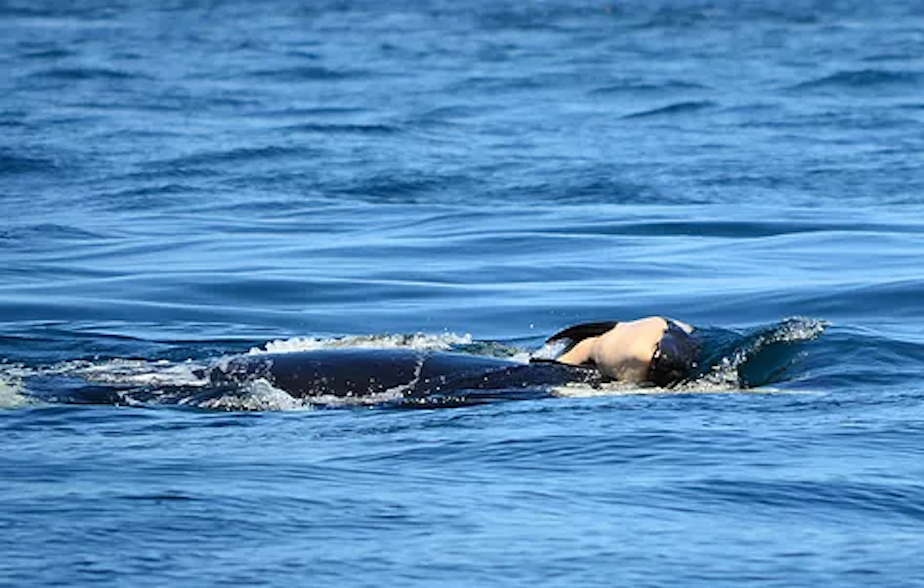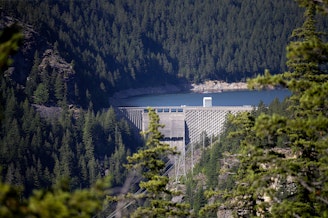Want to save orcas? Stop eating Chinook salmon, whale biologist says

It's now been nine days that a J-pod orca mother has been carrying her dead calf on her head, refusing to let it sink.
Kim Malcolm talks with Dr. Deborah Giles about how individuals can help with the recovery of southern resident killer whales. Giles is a killer whale biologist with the University of Washington's Center for Conservation Biology.
Here are three of Giles' suggestions:
Stop eating Chinook salmon
Giles told Malcolm that she thinks people excluding Chinook salmon from their diet could help with orca recovery.
"I recognize that Chinook salmon are the tastiest and most desirable for humans to eat," Giles said. "The whales feel the same way. The difference is that the southern resident killer whales rely on Chinook salmon for their lives."
Orcas evolved to eat Chinook salmon, but fewer and fewer fish are returning to rivers to spawn.
Stop flushing meds down the toilet
Pollution is also a factor in orcas' decline. Giles encouraged Puget Sound-area residents to think about "everything that we put down our drains."
Using biodegradable cleaning products would be a good first step. But even cocaine, anti-depressants, and birth control are showing up in fish because people are flushing them down the toilet. Stop doing that, Giles said.
Do vote, do talk to your representatives
"How we use our right to vote is very powerful," Giles said. "And if we're putting people in office that have an environmental agenda, that care about the environment, that recognize that humans are a part of the environment, that's going to be huge."





